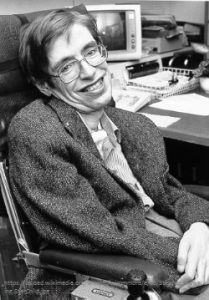Technology has reached new heights in this modern era, but even now individuals stress over robots and computerization costing occupations. Be that as it may, this nervousness depends on complete machine fear, cautions Thilo Brodtmann, the executive director of the Mechanical Engineering Industry Association (VDMA).
Innovative advancements in industry can be attributed to competition in industry, environmental change or a maturing society. Despite of this, individuals look progressively on edge towards further advancements. Mechanization is in peril of turning into the subject of a level-headed discussion not in light of reason, but rather on dread. “Robots to take 15 million of your employments”, shouted the Daily Mail for instance. Methods of how to approach new advances, and computerization will influence our work showcase. However, as in past mechanical upsets, digitization accompanies openings and dangers that we need to keep in context.
“The development of full artificial intelligence could spell the end of the human race…. It would take off on its own, and re-design itself at an ever-increasing rate. Humans, who are limited by slow biological evolution, couldn’t compete, and would be superseded,”
Will Robots act complementary?
An Oxford Martin School study from 2013 claimed that approximately 43% of the US jobs are highly in danger from automation. In addition to this, an analysis by the Centre for European Economic Research (ZEW) depicted the figure at 9%, believed that a worker executes wider range of tasks and cannot be wholly replaced by a machine
For instance, a nurse profession involves interaction with patients and dispensing food. While the latter can be automated but the former can be still need, a human being to understand the feeling and the assistance and care that the patients require.
Moreover, to describe in broader context it can be said as a machine will make things simpler and efficient but the judgement, intuition, creativity and the experience is very complex and tedious to expect from a robot. Furthermore, the quantitative output can be superseded by the robot but the human qualitative subject is still a matter of debate that cannot be matched by a robot till date.
Mortals must act deliberately
Employments will be lost due to computerization; new ones will be made because of new plans of action. It is actually the principle assignment of governments to plan for this future and to execute cutting edge innovations. Plans for deep-rooted learning, research and framework needs to be perfected before they can be implemented.
Contemplating the dangers and chances of mechanization is still immature behavior. The general concern remains that it will be progressively hard to locate an adjusted approach if individuals become frightened of innovative advancements in this field.



